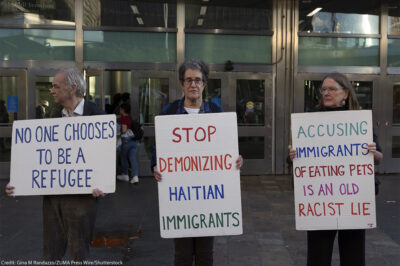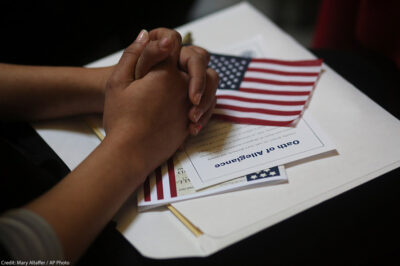Every year since 1994, the President of the United States proclaims January 16 as "Religious Freedom Day."
January 16th commemorates the anniversary of the adoption of the Virginia Statute for Religious Freedom, the first legislative enactment in the history of the world to proclaim the fundamental importance of religious freedom. The Statute also played an important underlying role as a precursor to our Bill of Rights' constitutional protections for religious freedom.
Presidential proclamations of "Religious Freedom Day" typically praise not only the eighteenth century founders Thomas Jefferson and James Madison, but twentieth century Americans who promoted religious freedom through international instruments such as the Universal Declaration of Human Rights (UDHR) and the International Covenant on Civil and Political Rights.
Freedom of belief and worship is not just a constitutional right; it is a fundamental human right. The UDHR establishes that religious freedom is a fundamental human right, stating:
[e]veryone has the right to freedom of thought, conscience and religion; this right includes freedom to change his religion or belief, and freedom, either alone or in community with others and in public or private, to manifest his religion or belief in teaching, practice, worship and observance.
Although the U.S. Constitution and human rights standards guarantee religious freedom to all, religious discrimination is still a problem in the United States. Jeremy Gunn, director of ACLU Program Freedom of Religion and Belief, writes that "[w]hile American laws do not discriminate against particular religions, and while most religious groups are free to practice, there are certain groups disproportionately subjected to unfavorable treatment by society and at times by public officials." One group that falls into this category is Muslim-Americans.
In the last few years, the U.S. has seen many attacks on religious freedom, particularly since the tragic events of 9/11. These attacks on religious freedom have hindered the ability of Muslim-Americans, Sikh-Americans, Arabs, and South Asians to give religiously-obligated charity, be free from discrimination at work, worship without fear, express their religious belief, associate with those who share their faith, and wear religious attire.
In Michigan this November, the ACLU Human Rights Program teamed with the ACLU of Michigan, Arab Community Center for Economic and Social Services, and other local organizations to host a workshop on the challenges of keeping one's faith in post-9/11 America due to religious and ethnic discrimination. One of the featured speakers was Jameelah Medina, an ACLU client who was forced to remove her hijab in a San Bernardino County, California jail. Jameelah's story is shared on YouTube and shows us that we have much farther to go in achieving the eighteenth century founders' goal of eliminating religious discrimination and combating intolerance on the grounds of religion or belief.
Please note that by playing this clip You Tube and Google will place a long-term cookie on your computer. Please see You Tube's privacy statement on their website and Google's privacy statement on theirs to learn more. To view the ACLU's privacy statement, click here.
While Religious Freedom Day recognizes America's role as an early world leader on religious freedom, the best way to honor America's contribution to religious freedom, however, is not only to celebrate what has been accomplished but to rededicate ourselves to achieving the ideal the Constitutional framers intended. The Obama administration must end religious discrimination, not perpetuate the wrongs that have tarnished America's reputation as a beacon of religious freedom especially in times of national emergency.




